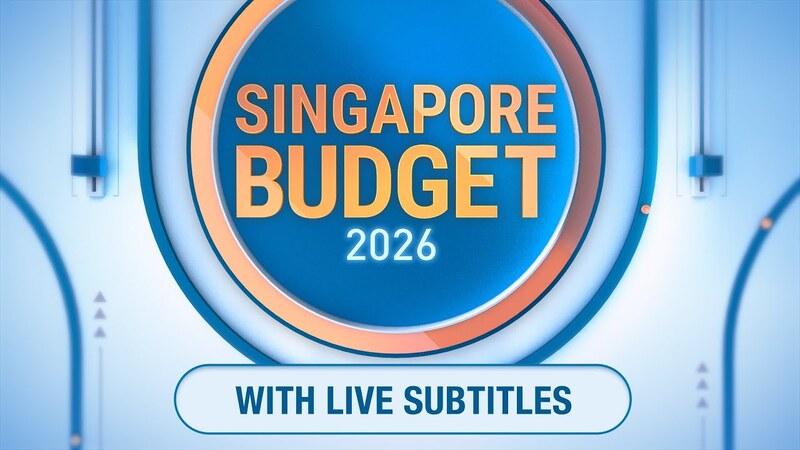Unveiling Singapore's COMPASS Framework: Implications for Companies, Workers, and Foreign Professionals
Singapore's dynamic business landscape is once again at the forefront of change, as the Ministry of Manpower (MOM) prepares to roll out the Complementary Assessment Framework (COMPASS) in September 2023. This revolutionary system is poised to reshape the hiring landscape for both Singapore companies and foreign professionals.
Recently, a feature by Lianhe Zaobao* highlighted the key features of COMPASS and its potential impact on businesses, local workers, and individuals seeking opportunities in the Lion City. Our very own Group CEO, Mr. Kenji Naito, shared insights into how this framework might ripple through the employment landscape. Let's delve into the key takeaways from Lianhe Zaobao’s feature articles.
A Multifaceted Evaluation System
Starting from September 1, 2023, foreign professionals applying for the Employment Pass (EP) will undergo an assessment using the COMPASS framework. Under the COMPASS framework, EP applications will be evaluated based on four core criteria: Salary, Qualifications, Diversity, and Support for Local Employment.
Employers must amass at least 40 points to qualify for foreign hire visa applications. The same framework will also apply to renewal applications from September 1, 2024. The minimum qualifying salary for new EP applicants stands at S$5,000, rising to S$5,500 for those in the financial services sector, with the salary requirement increasing with age.
The unique aspect of COMPASS lies in its synergistic criteria. If a foreign hire's salary falls short of the top one-third of local PMETs, compensatory points can be earned by excelling in another criterion. This encourages a comprehensive evaluation that considers not only salary but also qualifications, diversity, and commitment to local employment.
Equitable Compensation and Fair Hiring Practices
MOM has compiled income data for local PMETs aged 23 to 45 in 22 industries, providing a valuable reference for employers. Sectors like banking, finance, insurance, ICT, and specialised services demonstrate higher PMET salary standards. For example, a 35-year-old EP applicant in the ICT industry would require a fixed monthly income of $9,252 to secure 10 points, compared to $5,081 for an applicant in the food and beverage sector.
Annual salary benchmarks will be released each March, in sync with EP applications starting from September.
One of the standout features of COMPASS is its focus on equitable compensation. The framework not only promotes fair compensation, but also advocates for skill development and education. Criteria such as degree-equivalent qualifications from top-tier institutions hold substantial weight in the assessment process, highlighting the importance of continuous learning.
Impact on Companies, Local Workers, and Foreign Professionals
For Singapore companies, the COMPASS framework offers enhanced clarity in workforce planning. Transparency through the publication of PMET salary benchmarks could prompt adjustments within organisations, ensuring equitable remuneration aligned with individual contributions. Local employees could gain insights into their foreign counterparts' compensation, potentially triggering discussions on fair pay.
Mr. Gim Guan Sim, Executive Director of the Singapore National Employers Federation, explains that the COMPASS framework offers enhanced clarity and confidence in workforce planning for companies. The framework empowers companies to use the Workforce Insights Tool to allow employers to explore foundational criteria, including factors like the nationality composition of their PMETs, contributing to points accumulation. This new transparency could spark internal conversations about equitable compensation, ultimately enhancing employee satisfaction and motivation.
Mr. Kenji Naito, Reeracoen’s Group CEO, sees the disclosure of salary benchmarks as a catalyst for positive change. He believes that competitive salaries offered to both foreign professionals and local workers could elevate compensation standards across industries, fostering a more content and motivated workforce.
Aspiring foreign professionals eyeing opportunities in Singapore need to be aware of the new assessment framework. Meeting salary and qualification criteria will be pivotal for their success in the local job market. On the other hand, local workers can look forward to increased transparency, potentially driving discussions about fair pay and recognition for their contributions.
A New Era Awaits
As Singapore ushers in the COMPASS framework, the country takes a bold step towards fostering fairness, transparency, and competitiveness in its employment landscape. With companies gaining more clarity in workforce planning and employees benefiting from increased transparency, the framework paves the way for a thriving, motivated, and balanced workforce. As our Group CEO, Mr. Kenji Naito, pointed out, this transformation is a multi-faceted opportunity to align compensation standards and elevate the overall job satisfaction of workers, both local and foreign.
*Nanyang Sin-Chew Lianhe Zaobao, commonly abbreviated as Lianhe Zaobao, is the largest Chinese-language newspaper in Singapore with a daily circulation of about 136,900 as of 2021.
Note from Reeracoen:
We are honoured to have our company's insights featured alongside MOM's initiatives in Lianhe Zaobao. As we navigate this pivotal development, our commitment to keeping our clients informed and prepared remains unwavering. We will continue to provide guidance and support as Singapore's employment landscape evolves with the implementation of the COMPASS framework.
Tips on Navigating Through Change: Strategies for Success
As Singapore's business landscape adapts to the COMPASS framework, businesses, workers, and prospective foreign talent can navigate these changes effectively:
1. Strategic Compensation & Diversification: Embrace competitive compensation strategies to attract and retain both local and foreign talent. Explore alternative pathways like the S Pass for mid-level technicians to ensure flexibility in recruitment.
2. Invest in Skills: Encourage continuous skill development among local employees, enhancing their competitiveness in the job market.
3. Transparent Communication: Maintain open lines of communication with employees about changes in compensation practices, fostering understanding and trust.
Looking to Hire?
Please fill in this Inquiry Form — our Recruitment Consultants will be in touch with you soon!
OR
Seeking Your Next Career Opportunity?
Submit your CV — our Career Consultants will review your resume and contact you if we find a position that matches your profile!
Disclaimer:
The information provided in our blog articles is intended for general informational purposes only. It is not a substitute for professional advice and should not be relied upon as such.
While we strive to provide accurate and up-to-date information, the ever-evolving nature of certain topics may result in content becoming outdated or inaccurate over time. Therefore, we recommend consulting with qualified professionals or experts in the respective fields for specific advice or guidance. Any actions taken based on the information contained in our blog articles are solely at the reader's discretion and risk. We do not assume any responsibility or liability for any loss, damage, or adverse consequences incurred as a result of such actions.
We may occasionally provide links to external websites or resources for further information or reference. These links are provided for convenience and do not imply endorsement or responsibility for the content or accuracy of these external sources. Our blog articles may also include personal opinions, views, or interpretations of the authors, which do not necessarily reflect the views of our organisation as a whole. We encourage readers to verify the accuracy and relevance of information presented in our blog articles and to seek professional advice when needed.
Your use of this website and its content constitutes acceptance of this disclaimer.





